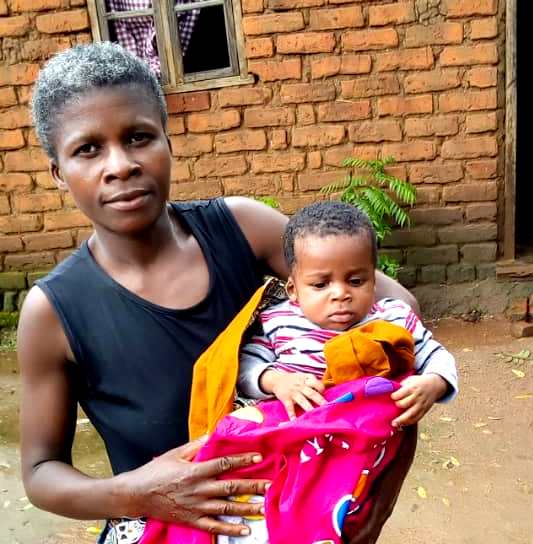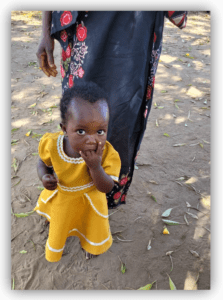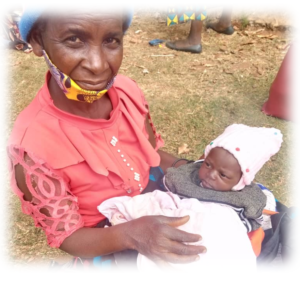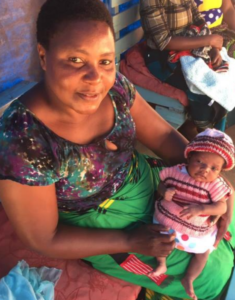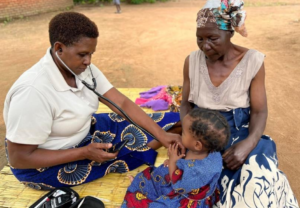This is Enes and her baby Vincent. In October 2018 Enes started laboring for the fifth time. She already had five little ones at home (including a set of twins) and all her previous pregnancies and deliveries had gone well, but her labor with Vincent was different. With four previous births, Vincent’s birth should have been relatively easy, but the pain continued hour after hour for two days without progress. She spent those two days she at a local hospital without an operating room. After two days midwives transferred her to the district hospital and she ended up with a c-section and a large healthy baby boy.
C-sections in Malawi carry significantly high risks than in the US; infections leading to a loss of fertility, loss of a woman’s uterus and ovaries, or even death are not uncommon. Four days after her c-section, a nurse noted pus coming from the wound. The initial treatment of IV antibiotics did nothing, and so Enes returned to the operating table. The surgeon who reopened her wound found a severe infection and decided that to save her life he would have to remove her uterus and ovaries. This time the surgical wound was left open to heal gradually. Nurses cleaned and repacked the wound daily with sterile gauze. Enes’s critical condition improved gradually over three weeks. Three weeks after Vincent was born she returned to her family.
Enes did everything she was taught by her midwives during her prenatal care. Rather than delivering at home, she labored at a hospital under the supervision of trained birth attendants. Evenso, she did not have immediate access to emergency obstetric care and there was a delay in the provision of the needed c-section. Because the infection began within days of the surgery it is probable that the infection was caused by poor surgical technique. These weakness in the healthcare system put Enes’ life at risk as well as the lives of her children.
During her hospitalization she was too sick to nurse and so her milk dried up – most families are too poor to afford supplemental formula and many children in Vincent’s situation die. As for her children at home, young children who are not in the care of their mother experience an automatic increased risk of illness when compared to their peers. Now four months after Vincent’s birth Enes is weak but able to care for her children and she is breastfeeding. Unfortunately, her milk supply does not yet match Vincent’s appetite. Joyful Motherhood nurses started following Enes when she was at the district hospital and have been providing supplemental formula for Vincent while also working with Enes to increase her milk supply.

